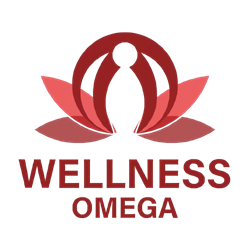Ever wondered why you’re feeling less energetic lately? The culprit might be lurking on your plate. Testosterone, the powerhouse hormone behind your vitality, can take a hit from certain foods.
Let’s dive into the world of testosterone production and uncover how your diet might be sabotaging your hormonal balance. From morning smoothies to late-night snacks, what you eat plays a crucial role in your body’s hormone production.
This article is brought to you by Health Nutrition – your complete health and wellness community. Health Nutrition offers everything you need to achieve your goals and live a fitter, healthier, happier life, all in one place. From personalized diet and exercise plans to one-on-one guidance from health coaches, Health Nutrition supports you every step of the way.
1. Soy Products: The Estrogen Mimickers

Soy, often hailed as a health food, has a dark side when it comes to testosterone levels. While it’s packed with protein, soy contains compounds that can throw your hormones off balance.
These sneaky substances can mimic estrogen in your body, potentially leading to a dip in testosterone. Think twice before reaching for that soy latte or tofu stir-fry. Your body’s hormone production might thank you for it.
Soy Milk and Tofu: Hidden Dangers
Soy milk in your morning coffee might seem innocent, but it could be chipping away at your testosterone. Tofu, a staple for many vegetarians, is another soy product to consume in moderation. These foods contain high levels of phytoestrogens, which can mimic estrogen in your body. While occasional consumption is likely fine, making soy a daily habit might impact your hormonal balance. Consider alternating with other protein sources to maintain optimal testosterone levels.
2. Processed and Fried Foods: Trans Fat Troubles
That greasy burger might taste great, but it’s doing your testosterone no favors. Processed and fried foods are often loaded with trans fats, notorious testosterone killers.
These artificial fats not only lower your good cholesterol but can also wreak havoc on your hormone levels. Fast food joints and packaged snacks are the usual suspects here. Your body deserves better fuel to keep testosterone production humming along.
The Trans Fat and Testosterone Connection
Ever noticed feeling sluggish after a fast food binge? Trans fats might be to blame. These artificial fats, found in many processed foods, can interfere with your body’s ability to produce testosterone.
Studies have shown a clear link between high trans fat intake and lower testosterone levels. Fried foods are particularly problematic, as the frying process often introduces these harmful fats. Opting for grilled or baked options can help you dodge this testosterone-draining bullet.
3. Vegetable Oils: The Unseen Culprit
Not all oils are created equal when it comes to your hormonal health. Many vegetable oils, despite their healthy reputation, can be detrimental to testosterone production. The culprit? High levels of polyunsaturated fats.
These fats, while necessary in small amounts, can upset your hormone balance when consumed in excess. Time to take a closer look at that bottle of cooking oil in your kitchen.
Polyunsaturated Fats and Hormonal Imbalance
Polyunsaturated fatty acids, abundant in many vegetable oils, can be a double-edged sword. While they have some health benefits, overconsumption can lead to hormonal imbalance.
These fats can increase the production of sex hormone-binding globulin, which binds to testosterone, making it unavailable for use. Oils like soybean, corn, and canola are particularly high in polyunsaturated fats. Consider switching to oils with a better fat profile, like olive or avocado oil, to support your testosterone levels.
4. Sugar and Sweetened Beverages: The Testosterone Drain
That soda might give you a quick energy boost, but it’s doing your testosterone no favors. Sugar-sweetened beverages are silent saboteurs of your hormonal health.
The sugar rush leads to an insulin spike, which can interfere with testosterone production. It’s not just sodas; watch out for seemingly healthy options like sweetened teas and fruit juices. Your body will thank you for choosing water or unsweetened alternatives instead.
Insulin Resistance and Hormonal Health
Ever heard of the term “insulin resistance”? It’s a condition closely linked to excessive sugar consumption. When your body becomes resistant to insulin, it can throw your entire hormonal health into disarray.
This includes a negative impact on testosterone production. Sugar-sweetened beverages are a major contributor to this problem. By cutting back on these drinks, you’re not just helping your waistline, but also your testosterone levels.
5. Licorice Root: A Surprising Testosterone Killer
Who would’ve thought that a common candy ingredient could impact your testosterone? Licorice root, while praised for some health benefits, has a dark side when it comes to male hormones.
This seemingly innocent herb can significantly lower testosterone levels. It’s not just in candy; licorice root is found in some teas and supplements too. If you’re a fan of licorice, you might want to reconsider your daily dose.
The Hidden Effects of Licorice Consumption
Licorice root daily might seem harmless, but studies suggest otherwise. Regular consumption has been linked to lowered testosterone levels in men. The glycyrrhizic acid in licorice can interfere with testosterone production.
Even small amounts, consumed regularly, can have a noticeable impact. If you’re concerned about your hormone levels, it might be wise to limit or avoid licorice root.
6. Alcohol: The Testosterone Suppressant

That happy hour might not be so happy for your testosterone levels. Alcohol, especially when consumed in excess, can be a significant testosterone suppressant. It interferes with the hormonal processes in your body, leading to decreased testosterone production.
While an occasional drink might not hurt, regular heavy drinking can have lasting effects on your hormonal balance. Think twice before reaching for that extra beer – your testosterone will thank you.
Moderation is Key: Alcohol and Hormone Production
When it comes to alcohol and testosterone, moderation is crucial. Excessive drinking can decrease testosterone levels and disrupt your overall hormonal imbalance.
Alcohol interferes with the production of reproductive hormones in your body. It can affect the cells in your testes that produce testosterone. If you choose to drink, do so in moderation to minimize the impact on your hormone levels.
7. Mint and Spearmint: Unexpected Testosterone Inhibitors
That refreshing cup of mint tea might be doing more than just soothing your senses. Surprisingly, mint and spearmint can have a negative impact on testosterone levels.
While these herbs are known for their calming properties, they can also calm down your testosterone production. It’s not just tea; watch out for mint in gum, toothpaste, and other products. If you’re concerned about your testosterone, you might want to limit your mint intake.
Mint’s Impact on Male Hormones
Studies have shown that regular consumption of mint can lower testosterone levels in men. The compounds in mint can interfere with testosterone synthesis in your body. This effect is particularly pronounced with spearmint.
While occasional mint consumption is unlikely to cause significant issues, daily intake might affect your hormone balance. Consider alternating mint with other herbal teas if you’re looking to support your testosterone levels.
8. Flaxseed: The Double-Edged Sword
Flaxseed often gets praise for its health benefits, but it’s not all good news for testosterone. This tiny seed is packed with nutrients, including beneficial fatty acids.
However, it also contains compounds that can potentially reduce testosterone levels. The high lignan content in flaxseed is the main culprit here. While flaxseed has its merits, moderation is key if you’re watching your testosterone.
Balancing Omega-3s and Testosterone Production
Flaxseed is rich in omega-3 fatty acids, which offer numerous health benefits. However, its impact on testosterone is a bit more complicated. The lignans in flaxseed can lead to reduced testosterone in some men.
If you’re consuming flaxseed for its health benefits, consider alternating with other sources of omega-3s. Fish oil or chia seeds might be good alternatives that don’t impact testosterone as much.
9. Dairy Products: The Calcium Conundrum
Milk does a body good, right? Well, it’s complicated when it comes to testosterone. Dairy products, while nutritious, can have a complex effect on hormone levels.
Some studies suggest that certain compounds in milk might interfere with testosterone production. It’s not just about the calcium; hormones naturally present in milk could be playing a role too. If you’re concerned about your testosterone, you might want to reconsider your dairy intake.
Navigating Dairy Consumption for Hormonal Health
Balancing dairy in your diet can be tricky when considering hormone levels. While dairy provides essential nutrients, it may also contain hormones that affect your own hormone balance.
If you’re worried about testosterone, consider opting for organic or hormone-free dairy products. Alternatively, explore healthier alternatives like almond or oat milk. Remember, moderation is key – a little dairy likely won’t hurt, but excessive consumption might impact your hormonal health.
10. Certain Types of Nuts: The Omega-6 Overload
Nuts are often touted as a healthy snack, but not all nuts are created equal for testosterone. Some nuts, particularly those high in omega-6 fatty acids, might negatively impact testosterone levels.
While healthy fats are crucial for hormone production, an imbalance can cause issues. Nuts like peanuts and almonds are high in omega-6s, which in excess can lower testosterone. It’s about finding the right balance in your nut consumption.
Choosing the Right Nuts for Testosterone Support
When it comes to nuts and testosterone, it’s all about making smart choices. Opt for nuts rich in monounsaturated fats and lower in omega-6s, like macadamia nuts or brazil nuts.
Walnuts, high in omega-3s including eicosapentaenoic acid, can be a good choice for overall health. Remember, variety is key – mix up your nut choices to ensure a balanced intake of different fats. By choosing the right nuts, you can support both your testosterone levels and your overall health.
Conclusion: Maintaining Healthy Testosterone Levels Through Diet
Navigating the world of testosterone-friendly foods doesn’t have to be a minefield. By being mindful of what you eat, you can support your body’s natural hormone production.
Remember, it’s not about completely eliminating foods, but rather finding the right balance. Small changes in your diet can lead to significant improvements in your testosterone levels.
But sometimes, diet alone isn’t enough. That’s where supplements like Testogen come in. Testogen is designed to safely boost your natural testosterone levels, helping you reclaim your vitality.
With its blend of clinically proven ingredients, Testogen offers a powerful solution for those looking to enhance their testosterone production. Remember, a healthy lifestyle combined with the right support can make all the difference in maintaining optimal testosterone levels.
Source link

